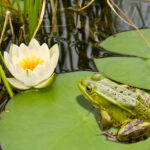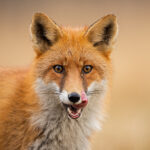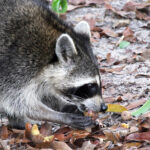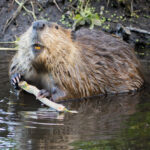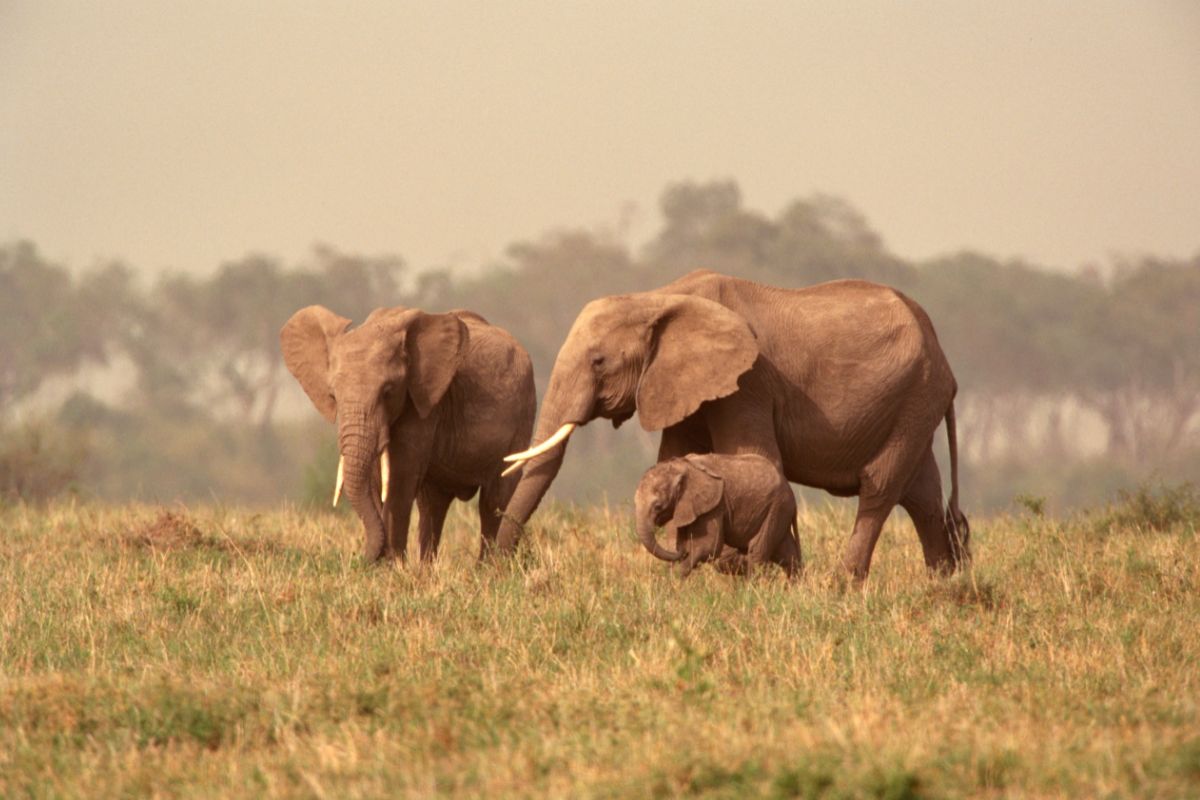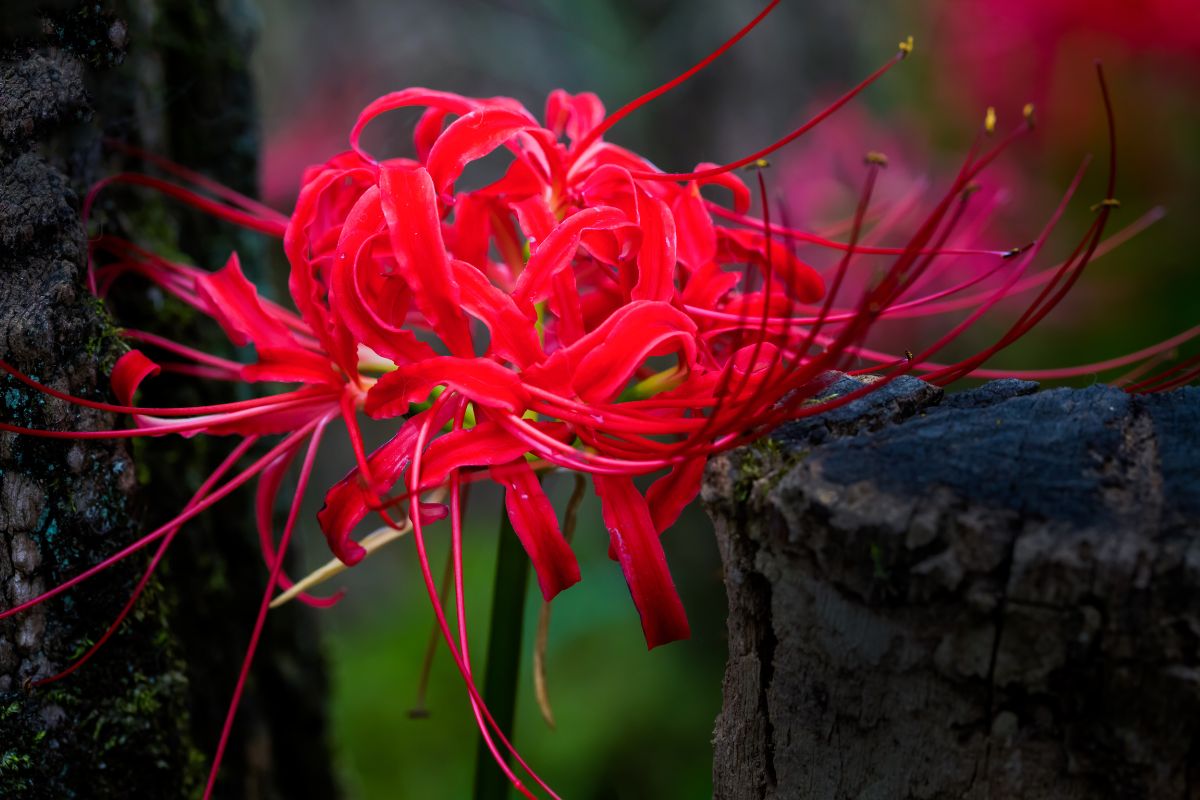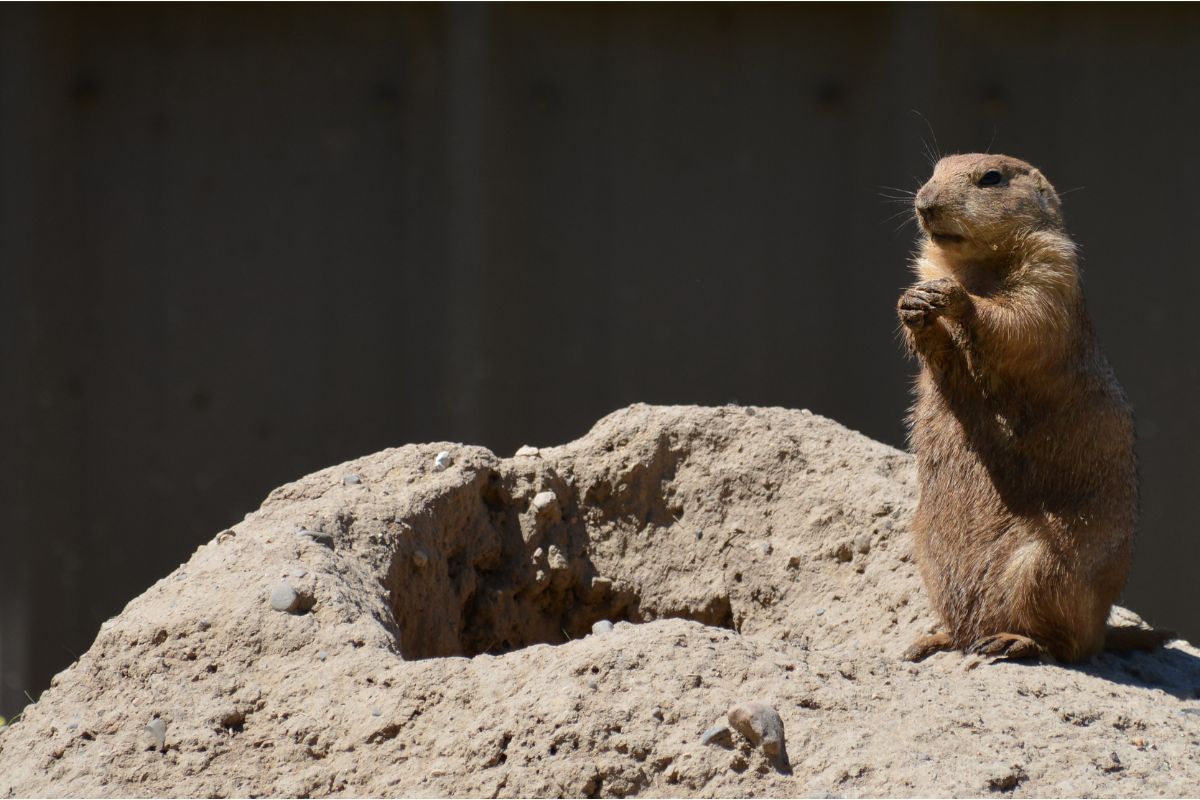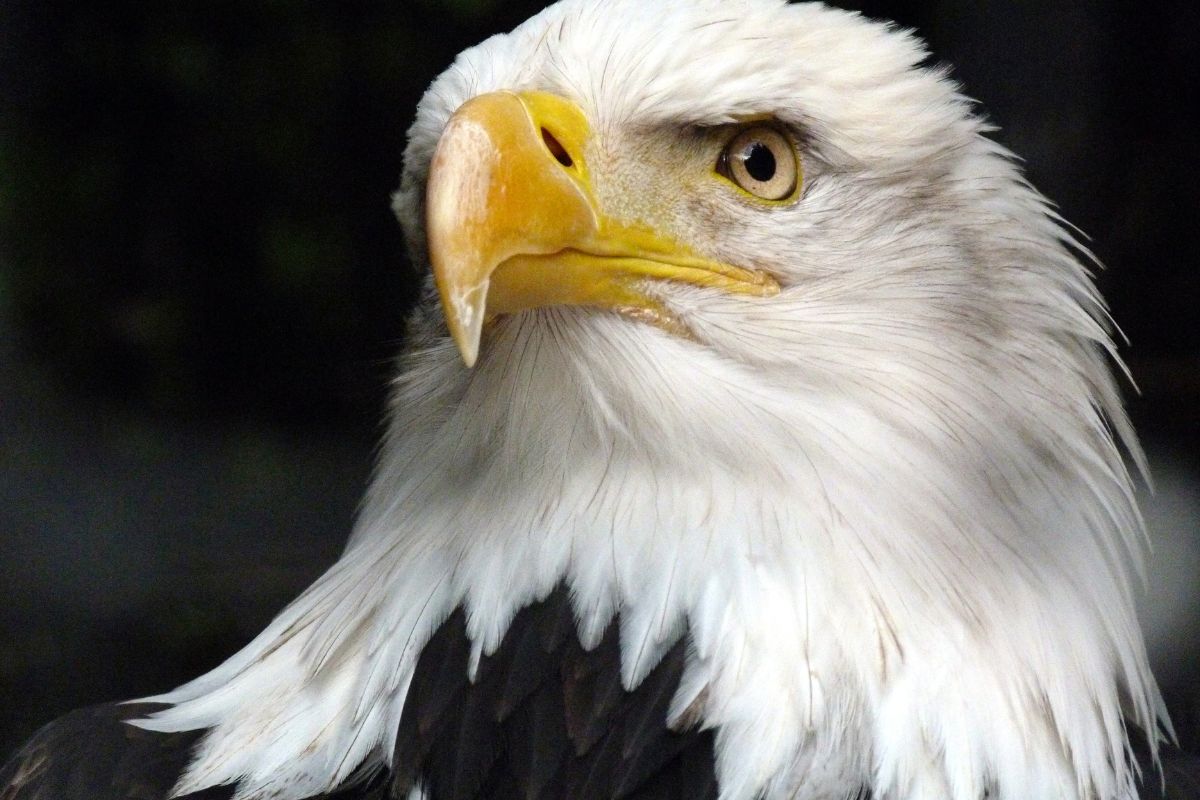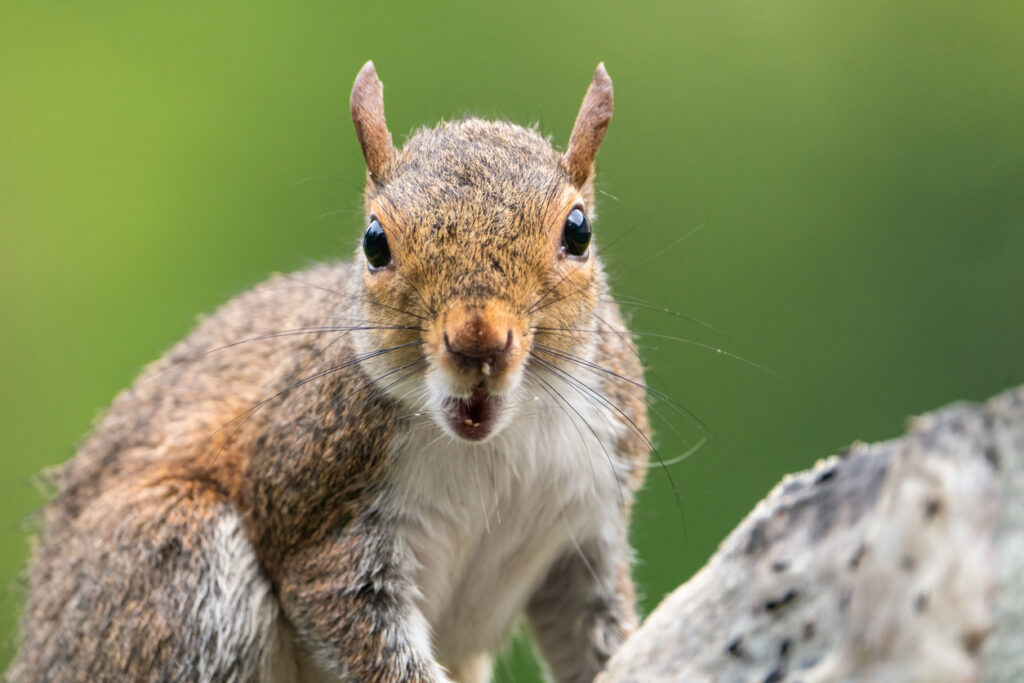
Squirrels are among the most familiar wildlife creatures, often seen darting around parks, forests, and even urban areas. They’re adaptable, quick, and resourceful, especially when finding food. But what exactly do squirrels eat? And how do they manage to survive through the tough winter months when food is scarce? Let’s explore the dietary habits of these fascinating creatures and answer some common questions about their eating behaviors.
Squirrels: The Ultimate Foragers
Squirrels are primarily herbivores, although they have been known to eat a variety of other food items depending on availability. Their diet consists mainly of nuts, seeds, fruits, and vegetables. However, squirrels are opportunistic feeders, which means they will eat whatever is readily available to them in their environment. This adaptability is key to their survival, especially in the wild where food sources can be unpredictable.
In the wild, squirrels forage for food in trees and on the ground, storing what they can to help them survive in colder months. Their sharp claws and strong teeth make them excellent climbers and foragers, allowing them to crack open nuts and strip bark off trees for sustenance.
What Do Squirrels Eat in the Wild?
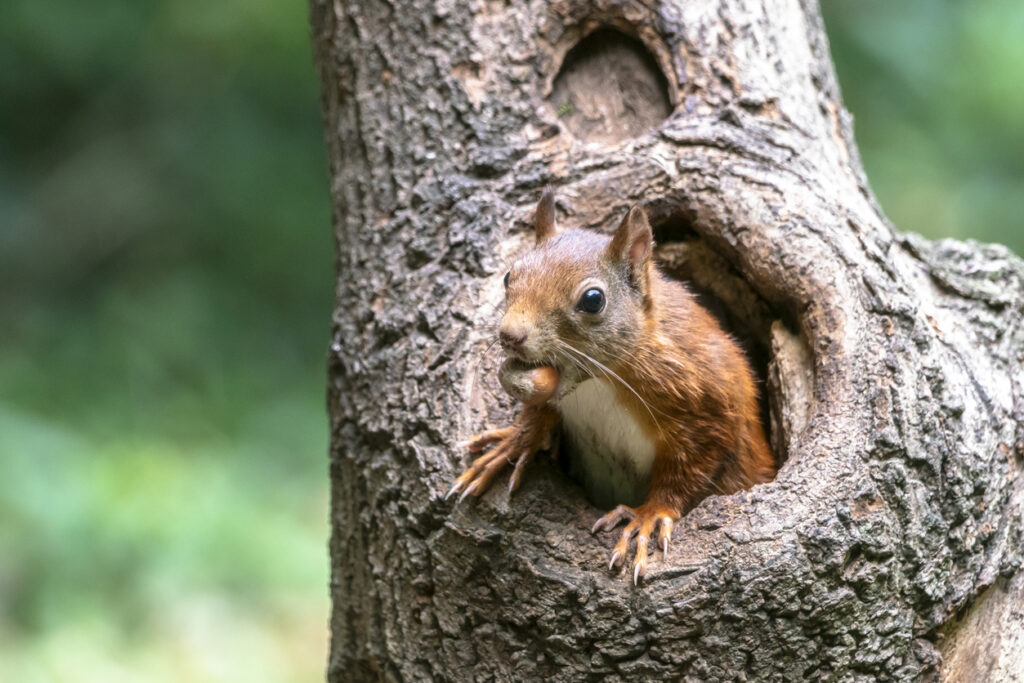
Squirrels in the wild rely heavily on the natural bounty of their surroundings. Their diet mainly consists of:
● Nuts and seeds: Squirrels are known for their love of nuts. Acorns, walnuts, pecans, and hazelnuts are common favorites. They will often gather and bury these nuts, caching them for later use. This behavior is particularly important in preparation for winter when food is less available.
● Fruits and berries: When in season, squirrels will feast on fruits such as apples, berries, and grapes. These provide vital vitamins and hydration.
● Fungi and mushrooms: Squirrels also consume fungi, which they can sometimes spot growing in the wild. This adds another source of nutrition to their varied diet.
● Tree bark and buds: In times of scarcity, squirrels will gnaw on tree bark or eat the tender buds of plants.
Though squirrels are mainly herbivores, they can sometimes display carnivorous tendencies. Yes, squirrels do occasionally eat bird eggs or even young birds if they come across an unguarded nest. While this is not their primary food source, it’s a natural part of their opportunistic feeding habits. Bird eggs provide protein, which can be especially important during times when plant-based food is hard to come by.
However, it’s important to note that such behavior is relatively uncommon and opportunistic rather than a regular dietary habit. Squirrels will generally stick to their usual plant-based diet unless they are particularly desperate for food.
One common question people ask is whether squirrels hibernate during the winter. The short answer is no. Unlike some animals, squirrels remain active during the winter months. However, they do slow down significantly and spend more time in their nests, which are typically built high in trees or in burrows underground. These nests, called dreys, provide them with shelter and warmth as the temperature drops.
To prepare for winter, squirrels will gather food in the fall, burying nuts and seeds in various locations. This practice, known as caching, helps ensure they have a food supply when the snow covers the ground and fresh food is scarce. Thanks to their excellent memory, squirrels are able to retrieve most of their hidden stashes, although some do go undiscovered, which can result in new trees growing in the spring.
How Do Squirrels Survive the Winter?
Winter presents a unique challenge for squirrels, but they are well-equipped to handle it. Their winter survival strategy revolves around two key behaviors: food storage and conserving energy.
● Food storage: As mentioned, squirrels spend the fall months gathering and burying food. Their primary winter diet consists of the nuts and seeds they’ve stored. These caches allow them to access food without having to search through snow and ice.
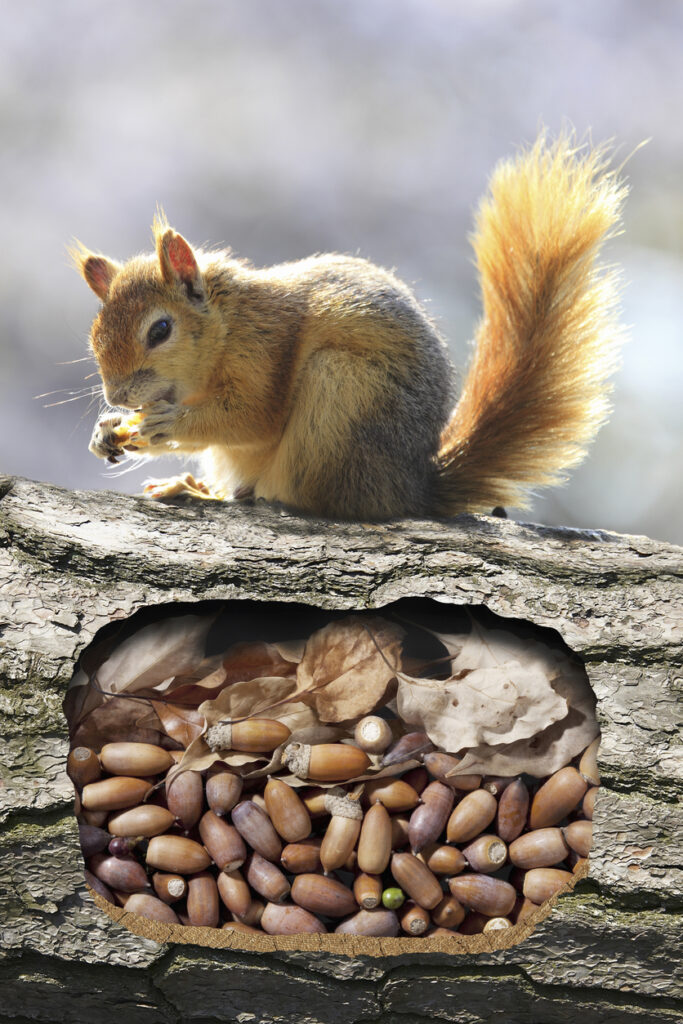
● Energy conservation: During the winter, squirrels become less active to conserve energy. They spend long periods resting in their nests and only venture out when absolutely necessary. By reducing their activity levels, they are able to stretch their stored energy and food supplies.
Fun Facts About Squirrels’ Eating Habits
● Clever food storage: Squirrels are known to use deceptive techniques when hiding food. If they feel they are being watched, they might pretend to bury a nut by digging a hole and covering it, only to move the nut elsewhere later.
● Chewing for survival: A squirrel’s teeth grow continuously throughout its life. This is why they are always chewing on something—food or tree bark—to keep their teeth at a manageable length.
● Seasonal eaters: Squirrels adjust their diet according to the seasons. During the spring and summer, they enjoy a varied diet of fresh fruits, vegetables, and insects. In the fall and winter, they rely more heavily on nuts, seeds, and their hidden food caches.
Squirrels are highly adaptable creatures that thrive in wild and urban environments. Their varied diet, consisting mainly of nuts, seeds, fruits, and vegetables, allows them to take advantage of whatever food sources are available. While they don’t hibernate, squirrels do slow down in the winter, relying on their food caches and energy-conserving behaviors to make it through the colder months. Whether munching on nuts or raiding a bird feeder, squirrels are fascinating creatures with impressive survival skills.
Next time you see a squirrel scampering around, remember—they’re experts at finding and storing food, ensuring they’re well-fed no matter the season
- What Do Squirrels Eat? Learn About Their Diet and Winter Survival - October 14, 2024
- What Do Raccoons Eat? Discover Their Diet and Eating Habits - October 6, 2024
- What do foxes eat? - October 5, 2024

